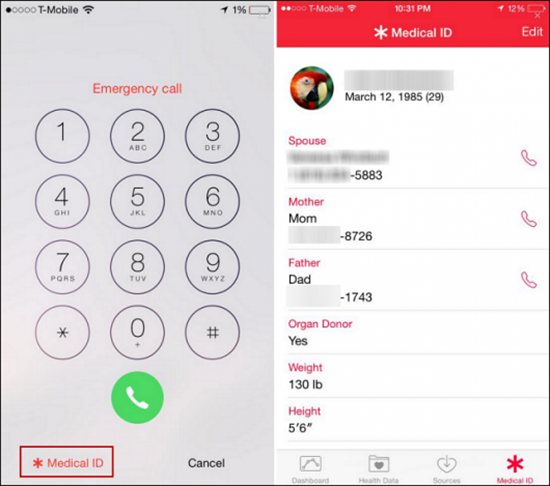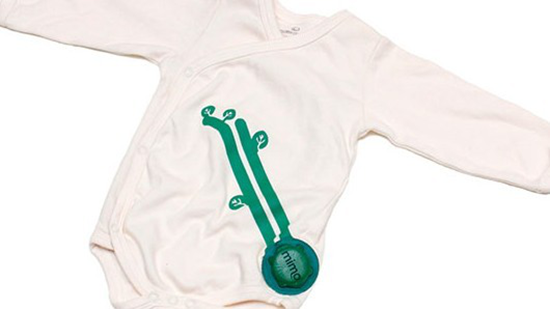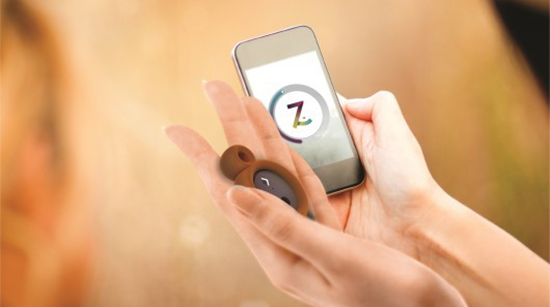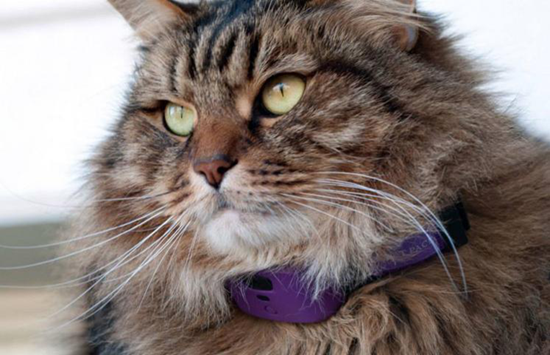
Technology has made monitoring our health and fitness easier, cheaper and more convenient than ever, with a dizzying array of apps and wearable devices - from fitness trackers and smartwatches, to headphones and clothing - designed to improve our wellbeing. With New Year's Eve just around the corner and getting fitter and healthier sure to be among many people's resolutions, we thought it a good time to look back at just some of the health and fitness tracking technology that caught our eye this year.
1. iOS 8 Health App
Apple's new mobile operating system, iOS 8, released in September included a new feature in the Health app that displays various bits of health data collected by various apps in one place.
In the same vein, the app's Medical ID feature lets you input various pieces of health information that could be important for emergency services workers if you are involved in an accident. This includes such things as allergies, blood type, medical conditions and emergency contacts. Importantly, this data can be accessed even if your phone is locked.
Available on an iPhone running iOS8, but not the iPad or iPod Touch.
2. Wello personal health monitor
Coming as a case for 4s/5/5s and as a standalone unit for Android 4.3 and above phones with Bluetooth 4.0 Low Energy, Wello turns a mobile devices into a personal health monitor. All you need to do is hold it for a few moments and sensors accurately measure your systolic and diastolic blood pressure, electrocardiography (ECG), heart rate, blood oxygen levels, temperature, and lung functions.
Thanks to Wello's microelectronics, nanosensors, imaging and data analytics, you'll receive instant results and and can monitor patterns over time that will help you identify ways to improve your health. Wello, which can be accessed remotely, also connects with other health and fitness devices, such as pedometers and sleep trackers, and syncs to existing devices like fitbit or a Jawbone Up.
Preorders have finished, but when Wello hits the market, which is expected to be in 2015, it will cost US$199.
3. Clothing for the health conscious
The OMsignal Biometric Smartwear is created from a stretchable, machine-washable fabric designed to compress the user's torso in order to encourage blood flow both during exercise, and after, to expedite recovery. The shirts feature an inbuilt accelerometer and electrocardiogram sensors that monitor variations in the wearer's heartbeat throughout the workout, while other sensors work together to calculate calories burnt. Data collected by the smart shirt is recorded by a detachable data module and relayed in real time via a Bluetooth to the OMsignal companion app (currently only available for iOS) on the user's smartphone.
The collection currently features only men's smart shirts, which range from US$100 to US$130 in price, with women's shirts slated to become available in early 2015.
Not content with its own offerings, OMsignal also partnered with Ralph Lauren to design the Ralph Lauren Polo Tech shirt. Complete with polo player logo, the shirt features an electrocardiogram, a breathing sensor, a gyroscope and an accelerometer that monitors and analyzes stress levels, energy output, heart rate, heart rate variability, breathing rate, breathing depth, activity intensity, steps and calories burned and provides real-time training feedback.
For those looking to keep fit in colder climes, the Hexoskin Arctic biometric smartshirt (US$199) features sensors knitted into a new textile developed from research on polar bears. It tracks metrics like heart rate, steps and calories burned, as well as cadence, activity level, acceleration, breathing rate, sleep duration, heart rate recovery and variability, and more (in all, it tracks some 42,000 data points per minute).
From shirts to shoes - or at least, insoles. The Moticon OpenGo sensor insoles (price on application) turn your footwear into a wireless performance-tracking system with 13 pressure sensors that monitor foot pressure, movement, acceleration patterns and gait, with the data stored on a USB stick for post-workout computer analysis, or transmitted wirelessly via ANT+ for real-time feedback while working out.
4. Mimo Baby Monitor
There's no age limit for wearable tech, and the Mimo Smart Baby Monitor is one for infants that gives peace of mind to parents by enabling them to monitor their child’s breathing, skin temperature, body position and activity patterns. Respiration sensors are embedded in a machine-washable infant bodysuit called the Kimono, and relay real-time information via Bluetooth to the Wi-Fi enabled docking station, and on to your smartphone. The Mimo can also provide notifications about any significant changes in the readings so that you can go and check on junior.
The Mimo features Intel’s Edison Chip, a self-contained, Linux-based computer the size of an SD card that enables devices to communicate with each other and trigger actions remotely. For example, when baby wakes, a signal is sent from the bodysuit to another Edison-enabled device, such as the Mimo Bottle Warmer. The parents receive their nudge via the smartphone app, and all they have to do to feed their baby is pick up an already warmed-up milk bottle.
The Mimo starter pack retails for US$199.
5. All in the wrist
There's a huge choice in fitness trackers, varying widely in features and price, with more becoming available all the time - including some from big name players like Samsung with its Gear Fit.
The Basis Peak, marketed as "the ultimate fitness and sleep tracker" can track motion, perspiration, skin temperature and heart rate. It works with a range of exercise activities, such as walks, bike rides and runs, but it can also keep tabs on the wearer while they sleep, capturing data on REM, periods of light and deep sleep, movements and interruptions.
The Peak (water resistant to 5 ATM) syncs via Bluetooth with an iOS or Android app that lets users delve into all the recorded data for each activity or night’s sleep. A future update will allow users to view notifications for alerts, such as calls or texts on the phone.
If you’re looking for a combined fitness tracker and smart watch that is more stylish (and watch-like) than a lot of the offerings out there, the Basis Peak, with its forged aluminium body and soft silicone strap, might be the device for you. It retails for US$200.
Other notables entries in this market include the Microsoft Band, which tracks steps, distance travelled, calories burned, and duration and quality of sleep, as well as providing significant smartwatch functionality in the form of email previews, calendar alerts, incoming calls, real-time weather and other notifications. Other features include a UV monitor, access to the Cortana personal digital assistant and an inbuilt scannable Starbucks card. It retails for US$200.
The Garmin vivosmart is a fitness tracker that takes the form of a bracelet. It displays a range of metrics, such as time, steps taken, distance travelled calories burned and sleep data, and also reminds you to get up and move if you’ve been inactive for too long. Notifications, such as texts, calls, email and calendar alerts from compatible Bluetooth devices can be displayed on the vivosmart's screen. The device retails for US$169.99.
Promoted as the "world’s most advanced fitness tracker," the Jawbone UP3 features an array of sensors that track resting heart rate, respiration, levels of sweat (via galvanic skin response), as well as skin and ambient temperature. There's no screen, however three LED indicators let you know your "mode status." The Jawbone UP3 is currently available for pre-order for US$179.99, with deliveries slated to begin in 8 to 9 weeks.
6. Jabra Sport Pulse Wireless headphones
While the wrist is the most common place to find a fitness tracker, the Jabra Sport Pulse Wireless headphones is all ears when it comes to bringing together fitness tracking capabilities and music in the one device. Packing Dolby Digital Sound technology, the Sport Pulse Wireless allows users to create and browse playlists, share music and adjust the sound equalizer. Users can also use the headphones to take calls.
Jabra's Sport Life App tracks heart-rate information supplied by a heart-rate monitor integrated into the earbuds themselves, which Jabra says is 99.2 percent accurate. The app, which can also be used to control the music, provides personalized real-time voice coaching based on a user's preferences, and users can set goals based on distance, time or calories burned, test aerobic capacity and adjust heart rate zone levels to optimize training.
The Jabra Sport Pulse Wireless headphones are available now for US$199.
7. Zenytime games for better breathing and well-being
A quick search of any app store will return a multitude of health and fitness apps, but the Zenytime is attempting to breathe new life into the category with a "puck" and companion app aimed at reducing stress. It does this by training users to breathe consciously and deeply, reducing the number of times they draw breath from an average 15 times per minute to around six per minute, for a few short sessions each day. Games are being developed based on yoga, fitness, sports and wellness disciplines.
The app, which will be available for iOS and Android, pairs with a breath-sensitive dongle (or "puck") that tracks the user's breathing, heart-rate and blood oxygen levels and connects to a mobile device via Bluetooth. An app dashboard provides stats, tips and rewards.
Zenytime is currently available for pre-order for US$79, with deliveries slated for mid-2015.
8. The PetPace collar
And finally, one for our furry, four-legged friends. The PetPace collar is designed to let you know that something's up with your pooch or moggie, before things progress too far.
Sensors in the collar measure the animal's body temperature, pulse, respiratory rate, activity level, calories burned, and body position, with the data sent to a companion app (iOS/Android) on the owner's device.
When any of the vitals or behavioural parameters start to deviate noticeably from what's normal for that animal's personal profile and/or breed, the app lets the user know via text message, email or push notification. Data can also be forwarded to a veterinarian.
The collar itself is US$150, with the annual subscription plan adding another US$180 to the price.
Those are just a few of the health and fitness-related tech that got people moving in 2014. There's sure to be plenty more in 2015, but none is likely to supply those most basic exercising requirements - motivation and perseverance.








No comments:
Post a Comment
Please adhere to proper blog etiquette when posting your comments. This blog owner will exercise his absolution discretion in allowing or rejecting any comments that are deemed seditious, defamatory, libelous, racist, vulgar, insulting, and other remarks that exhibit similar characteristics. If you insist on using anonymous comments, please write your name or other IDs at the end of your message.